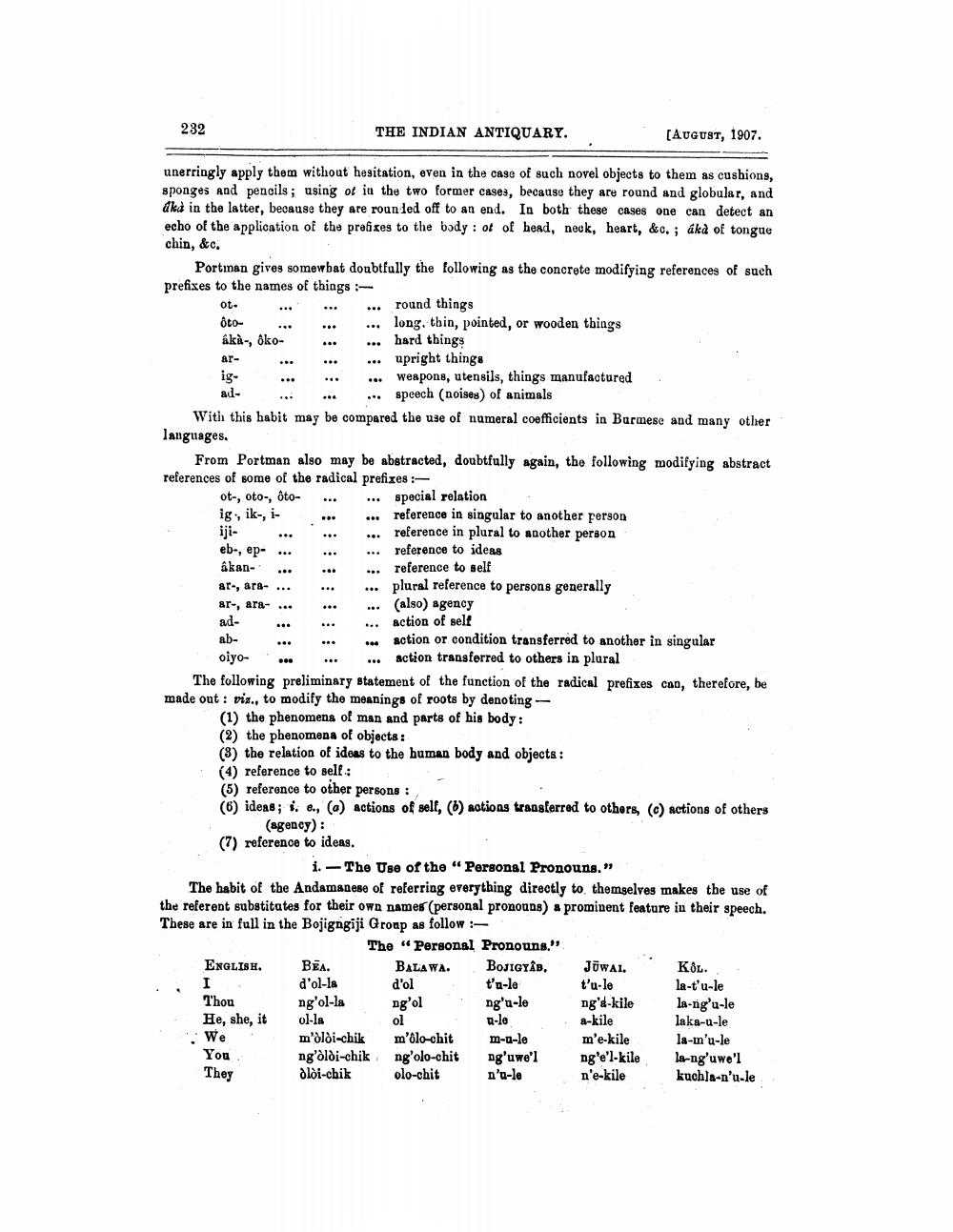________________
232
THE INDIAN ANTIQUARY.
[AUGUST, 1907.
unerringly apply them without hesitation, even in the case of such novel objects to them as cushions, sponges and pencils; using of in the two former cases, because they are round and globular, and aka in the latter, because they are rounded off to an end. In both these cases one can detect an echo of the application of the prefixes to the body of of head, neck, heart, &c.; ákà of tongue chin, &c.
Portman gives somewhat doubtfully the following as the concrete modifying references of such prefixes to the names of things:
ot
ôto
âkà-, ôko
ar
ig
ad
ot-, oto-, ôtoig, ik-, i
ijieb-, epâkan
With this habit may be compared the use of numeral coefficients in Burmese and many other languages.
From Portman also may be abstracted, doubtfully again, the following modifying abstract references of some of the radical prefixes:
ar-, ara
ar-, ara...
ad
ab
oiyo
...
***
***
ENGLISH. I
Thou He, she, it
. We
...
... speech (noises) of animals
You
They
round things
long, thin, pointed, or wooden things hard things upright things
weapons, utensils, things manufactured
special relation
... reference in singular to another person
reference in plural to another person
reference to ideas
...
BEA.
d'ol-la
ng'ol-la
ol-la
...
The following preliminary statement of the function of the radical prefixes can, therefore, be made out: viz., to modify the meanings of roots by denoting
(1) the phenomena of man and parts of his body:
104
...
(2) the phenomena of objects:
(3) the relation of ideas to the human body and objects:
(4) reference to self:
(5) reference to other persons :
(6) ideas; i. e., (a) actions of self, (b) actions transferred to others, (c) actions of others (agency):
(7) reference to ideas.
i.The Use of the "Personal Pronouns."
The habit of the Andamanese of referring everything directly to themselves makes the use of the referent substitutes for their own names (personal pronouns) a prominent feature in their speech. These are in full in the Bojigngiji Group as follow:
The "Personal Pronouns." BALAWA. BOJIGYAB. t'u-le
ng'u-le
u-le
reference to self
plural reference to persons generally
(also) agency
action of self
action or condition transferred to another in singular action transferred to others in plural
m'òldi-chik ng'òldi-chik dlòi-chik
d'ol ng'ol ol m’blochit ng'olo-chit olo-chit
m-u-le
ng'uwe'l n'u-le
JUWAL. t'u-le
ng'a-kile
a-kile
m'e-kile
ng'e'l-kile n'e-kile
KOL.
la-t'u-le
la-ng'a-le
laka-u-le
la-m'u-le
la-ng'uwe'l kuchla-n'u-le




